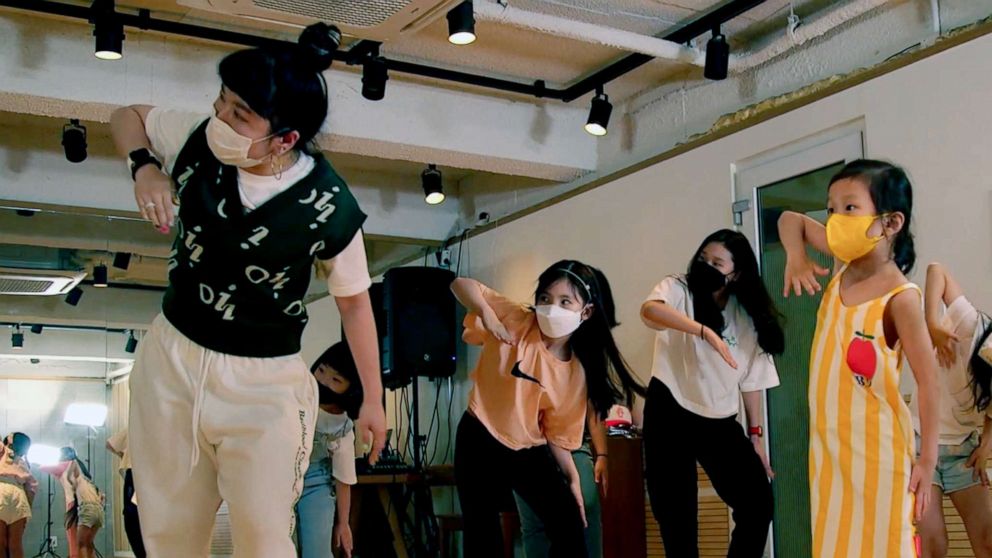K-pop classes being added to schools as music's success seen as growth industry in South Korea
SEOUL, South Korea -- Dozens of children repeat after their instructor's dance moves to K-pop group NCT Dream's latest song "Hot Sauce," as sweat drips from their foreheads.
These children, all around 8-years-old, are intensely following their instructor's every move as their parents' watch and cheer on their sons in a K-pop dance class for elementary school kids at a dance studio located in the wealthy streets of the Gangnam district in Seoul, South Korea.
K-pop's growing global presence -- and subsequent success -- in the music industry has led to a national recognition in South Korea of K-pop as a potential growth industry, alongside the likes of semiconductors and IT that South Korea has proven to be globally competitive.
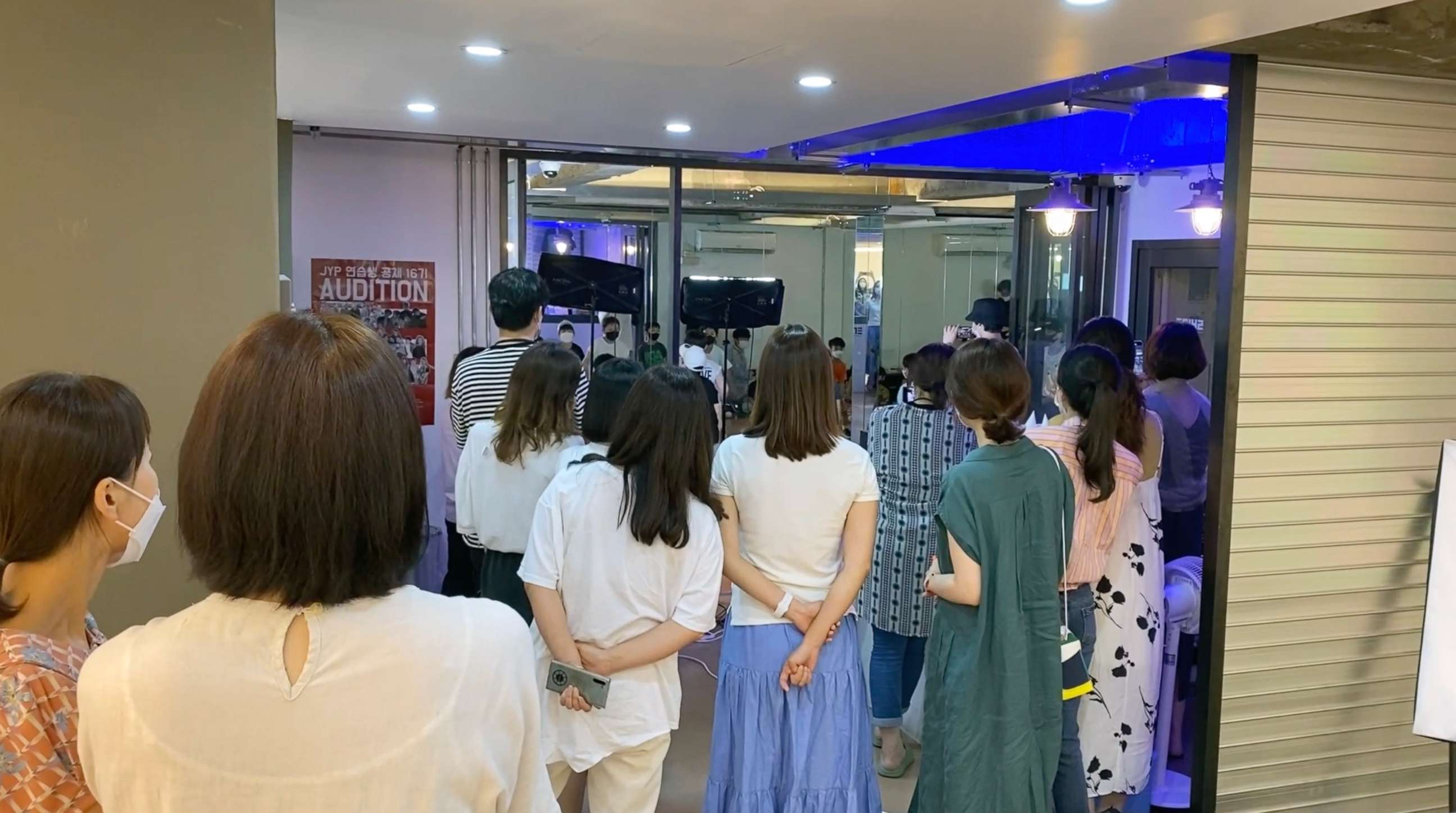
When K-pop boy band BTS topped the Billboard Hot 100 chart last summer with their first all-English single "Dynamite," South Korea's Ministry of Culture, Sports and Tourism published an analysis report estimating that the economic ripple effect of the song "Dynamite" alone earned up to $1.5 billion dollars for the country.
"The technical innovation of online concerts, and the growing K-pop fandom will have strong economic impact. When the K-pop industry grows, it inevitably leads to a need for more jobs in the industry," Park Chanuk of the Cultural Industry Research Center at the Korea Culture & Tourism Institute, told ABC News.
With prospects brighter than ever, parents, and even schools, are now jumping onto the bandwagon for an opportunity of a potentially promising career for their children. Parents waiting for their children's K-pop dance class to finish at the Shine Dance Academy in Gangnam say their boys and girls deserve a chance to discover their talents early on.
"I think if my son wanted to be a K-pop star, I'd like to see that," Xing Mei, a Chinese mom who was a fan of the first generation K-pop group H.O.T., told ABC News as she was filming her son throughout the class. "But it's up to him whether he'll make it or not."
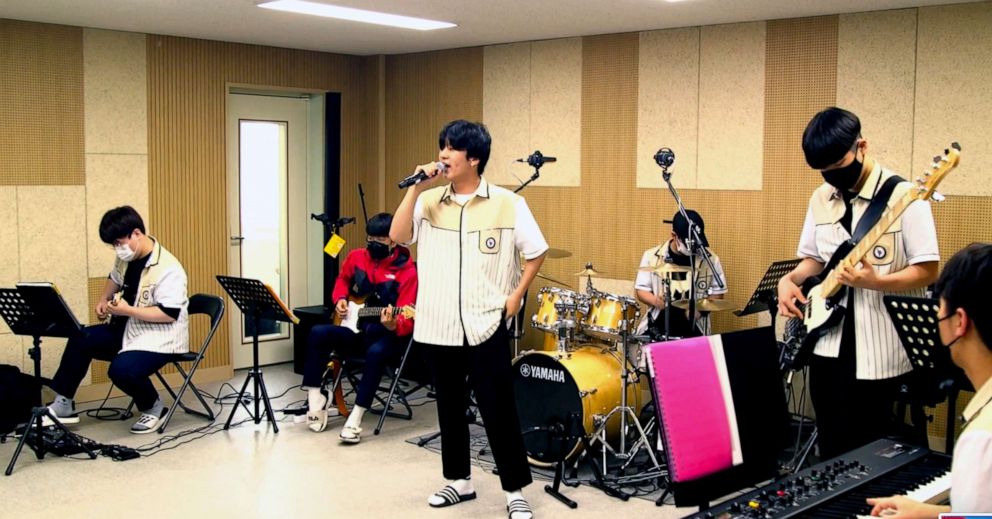
Another parent told ABC News that he saw a lot of potential for the K-pop industry globally, and that he wanted to let his son have all possibilities open, including the possibility of becoming a K-pop celebrity like BTS, Blackpink and EXO.
"I think the perspective has changed a lot from less than 10 years ago," Calvin Kang, father to a 9-year-old boy, told ABC News. "Many parents didn't want their kids to be an entertainer in the past but now, after the success of K-pop, I think that a lot of parents introduce their kids to K-pop dancing and singing."
The Shine Dance Academy, which claims it is the first and largest K-pop dance academy for kids in South Korea, explained that more children have shown interest in their program after the success of BTS in the global market.
"Parents are really serious about this," Dance instructor Joe Song told ABC News. "It's not cheap to have kids take K-pop dance classes from an early age, and it takes that commitment for both kids and parents to actually do this."
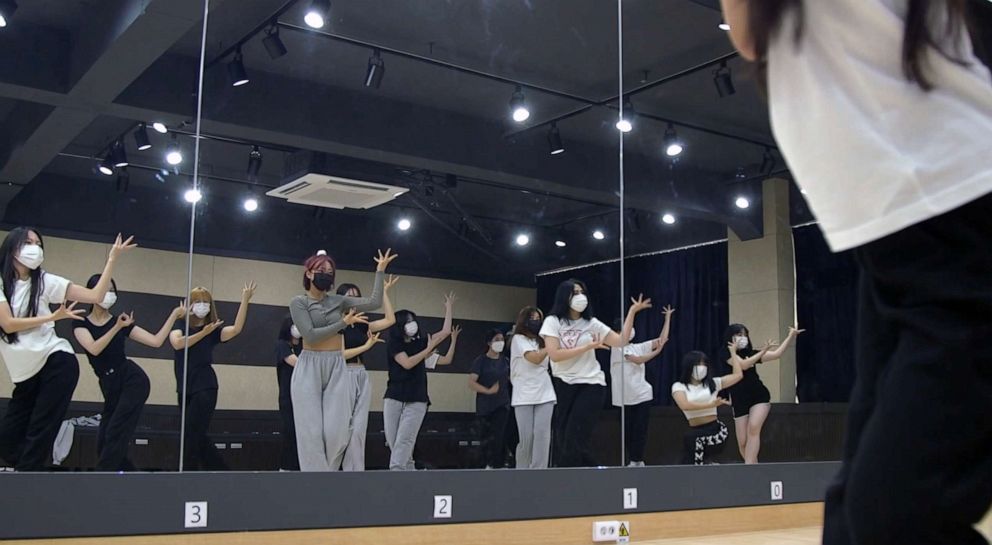
The accelerated popularity of K-pop has even pushed schools to create classes for their students.
Kwangchon High School, a small school of only 76 students in the rural town of Chungnam Province, was quick to adapt to this rising demand and, with permission from the Chungnam Province Office of Education, the school restructured its curriculum to specialize in "all things K-pop," -- even renaming the school to the High School of Korean Pop and Performing Arts.
Here, teenagers take classes such as musical instruments, live performance practice, second language and concert drills which are considered crucial to being on the path to become a star entertainer.
"The goal is not to nurture K-pop celebrities," Principal Park Boyung Gyu of the K-pop high school told ABC News. "We aim to let students find their strengths so they can take part in the millions of job opportunities surrounding the globally expanding K-pop industry."
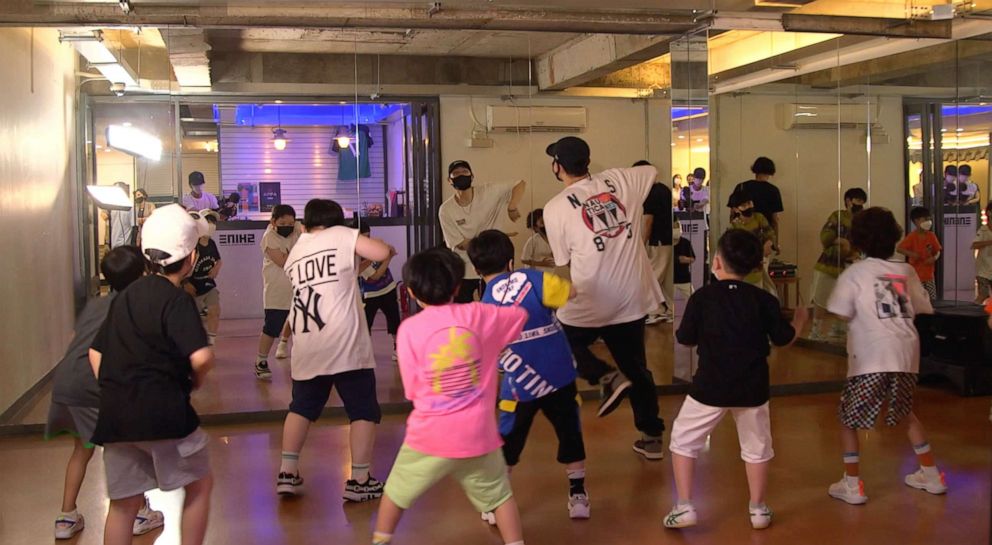
The High School of Korean Pop and Performing Arts received over 10 million dollars' worth of investments in its facilities from its local government and education offices.
The Chungnam province education office paid for the school's K-pop changeover expense as well as for new instruments in the hopes that the school will become a landmark for K-pop in South Korea. All lessons, including professional K-pop dance and song writing classes using music editing software, are free of charge at the school and the 124 attending students only have to pay for their dormitory and commute.
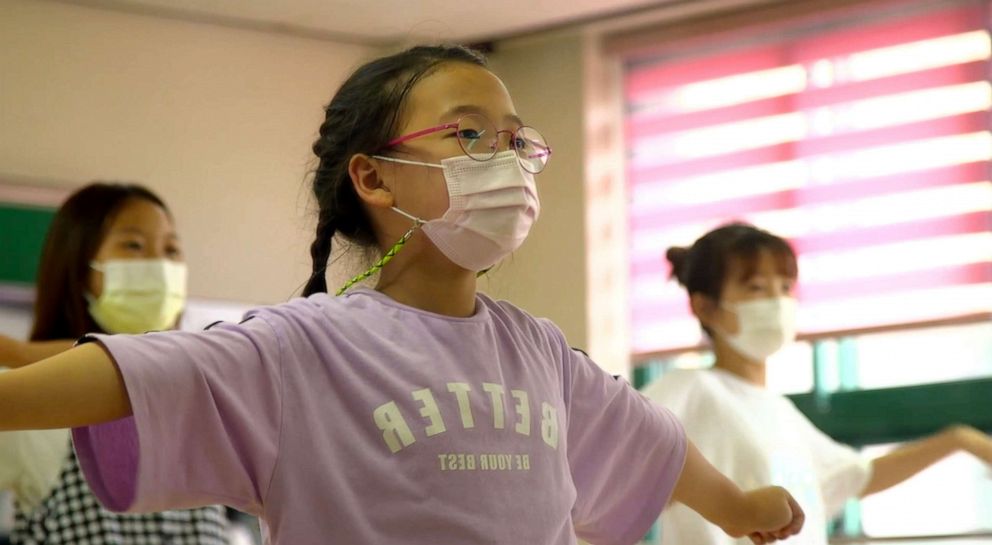
"Considering the limitless potential of the K-pop industry, we are investing in the school hoping the city will become a mecca to train workforce for the growing K-pop industry," Jeong Dae-hoe, vice commissioner from the Chungnam province education office, explained to ABC News.
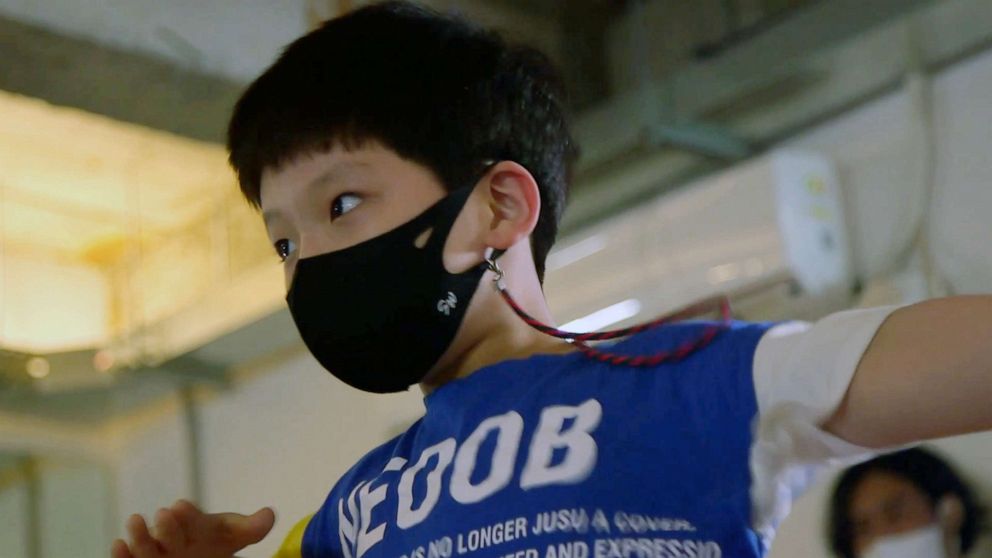
More than a dozen colleges in South Korea that used to teach classical music and dance are beginning to adopt K-pop as part of its formal education curriculum as an increasing number of the younger generation aim to be part of the multi-billion-dollar industry in order to train young talent who could eventually take on jobs like producers, music writers, choreographers or production staff.
"There's a greater added value to K-pop, not just from the music and contents itself, but K-pop's impact on products and services provided by general companies," K-pop columnist Kim Hern-sik told ABC News. "K-pop also has a positive effect on South Korea's brand image, therefore resulting in an economic effect that cannot be calculated."
ABC News' Joohee Cho and Hyun Soo Kim contributed to this report.
